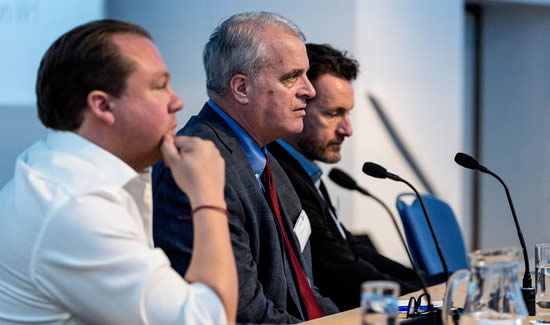|
Wheels Up, Surf Air
and newcomers Waves are all making use of proprietary apps, a
significant shift for business aviation, which until recently has
thrived on personal relationships with customers.
For
Nick Magliocchetti,
Founder and CEO of new Guernsey air taxi Waves, the app is a
customer acquisition tool. He explained, “The value of the business
is in how many users the app has rather than the profitability of
the operating assets.”
This is where
Magliocchetti’s expertise lies - his background is in applying
technology to “distressed assets” to turn them around before selling
them on. His plan going forward is to license the WAVES platform on
a technological level and sell It to other inter-island or air taxi
operators globally.
John Colucci,
EVP and Founding Partner of Wheels Up, called the app revolution “disintermediating,”
confirming his company sells memberships to people they’ve never
spoken to before “via electronic means.”
However, to give
customers the confidence to buy these kinds of services online, its
important Wheels Up owns its own aircraft. (The operations are
managed by Gama Aviation in the US, who do a great job, he said.)
Colucci argued a “closed fleet” offered customers the “safety,
security, stability and surety” and allowed his company to take
advantage of the fact people no longer wanted to own their own
business jets in the face of rapidly depreciating values.
Simon
Talling-Smith, CEO of Surf
Air Europe, agreed owning aircraft was important, for the business
as well as its customers. “We have 65 Pilatus PC-12NGs on order in
the US - without that we’d never achieve the economy of scale our
business relies on.”
 |
|
(L to R):
Nick Magliochetti, CEO, Waves: John Colucci,
Founding Partner, Wheels Up: Simon Talling-Smith,
CEO, Surf Air Europe | Images: billypix.com |
Talling-Smith
confirmed Surf Air has already been approached by other geographies
wanting to roll out a similar model, but making it work across the
staggering land mass of South East Asia was something that needed
thinking about.
For Surf Air and
Wheels Up, which are both based on subscription models, the benefit
is predictable revenue for investors. For Surf Air, operating on a
schedule means predicable costs too. Although Wheels Up only has
limited shuttle services - between New York and Martha’s Vineyard
during the summer, for example - Colucci added that the membership
business has better margins that the aviation business.
Talling-Smith pointed
out that subscription models are doing well across all markets, be
it for private jets or for razor blades. He claimed the most
important thing for sustainably is loyalty: “Churn is the death of
subscription models.” An interesting point, since loyalty to
commercial airlines is fast disappearing. Nonetheless, both
recognise there’s a more negative perception of business aviation in
Europe, where they’re trying to expand.
Waves may not be
faced with the same perception problem, as its market in the Channel
Islands has a niche set of circumstances. Magliocchetti stated that
over the last decade, air passenger numbers on both inter-island
services and island to Mainland UK flights have decreased by 50%
from 250,000 per year to 112,000 due to poor customer experience on
commercial airlines.
Magliocchetti
revealed that while airlines charge between £40 and £130 each way
using the dynamic pricing model, Waves (which isn’t a members-only
service) has a fixed price of £65 each way. When faced with the
question about how its Cessna Caravans deal with the unpredictable
weather in the Channel Islands, Magliocchetti says while commercial
passengers will sit in the airport or the tarmac waiting for it to
clear, Waves can communicate with its customers, telling them to
stay at home a little longer or offering them the choice to re-
book.
What all three
companies are clear on is the amount of time they can save
travellers - up to three hours each way. Colucci commented, “The
shorter the actual flight, the more time on a percentage basis
you’re saving. People misunderstand the importance of this. OEMs
keep making bigger and more expensive aircraft but average flight in
North American or European flight is 1.2 hours.”
With veteran
journalist and moderator
Kathryn Creedy saying
there are no less than 14 studies concluding business aviation is
good for the bottom line of businesses, it seems these three might
be onto something! |
